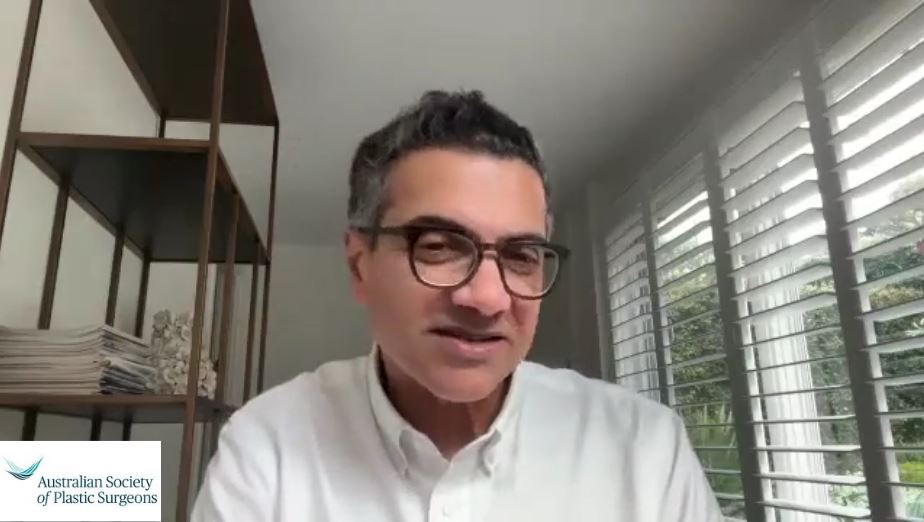Procedures
Labiaplasty
- About Your Specialist Plastic Surgeon
- Cosmetic
- Non-surgical Procedures
- Plastic Surgery Glossary
- Questions for Your Surgeon
- Reconstructive
- Surgical Procedures
- Abdominoplasty (Cosmetic)
- Abdominoplasty (muscle repair postpartum)
- Arm Lift
- Body Contouring
- Body Lift
- Breast Asymmetry Correction
- Breast Augmentation (Implants)
- Breast Implants with Lift
- Breast Lift
- Breast Reconstruction
- Breast Reduction
- Brow Lift
- Burns and Scarring
- Buttocks Lift
- Chin Surgery
- Cleft Lip & Palate
- Ear Surgery
- Eyelid Reduction Surgery
- Facelift Surgery
- Facial Implants
- Fat injection
- Gender Affirming Surgeries
- Gynaecomastia (Male Breast Reduction)
- Hair Replacement Surgery
- Hand Surgery
- Labiaplasty
- Liposuction
- Nipple Enhancement for Inverted Nipples
- Nose Surgery
- Scar Revision
- Skin Cancer
- Thigh Lift
- Tissue Expansion
Labiaplasty

Any surgical or invasive procedure carries risks. Before proceeding, you should seek a second opinion from an appropriately qualified health practitioner.
Labiaplasty refers to any procedure to modify the labia. The labia are the folds of skin or ‘lips’ at the entrance to the vagina. In practice the term labiaplasty usually refers to reduction or reshaping of the labia minora (the inner lips) however many women also request changes to their labia majora (outer lips), clitoral hood and/or mons pubis (the pubic mound is the triangular area of skin and fat overlying the pubic bone which is covered by pubic hair). Your Specialist Plastic Surgeon will determine which procedure is required to address your specific concerns.
There is huge variability in the appearance of the normal labia minora amongst women. In some the labia minora are longer and extend well beyond the length of the labia majora. Many women dislike this appearance and some have physical discomfort (e.g. discomfort when wearing tight clothes and pain with sexual intercourse).
Labiaplasty is an operation that aims to reduce the size or change the shape of the labia minora. Labial tissue can be removed using a ‘wedge’ or ‘trim’ technique so that it no longer protrudes beyond the labia majora. Labiaplasty has a high rate of patient satisfaction.
Labia Majora procedures include removal of excess skin or fat injections to plump up the outer lips and restore volume
Clitoral hood reduction usually involves removal of excess skin folds to make the area appear less bulky or to uncover the clitoris to improve sexual pleasure.
Mons pubis procedures include liposuction or fat removal to debulk the area. Pubic lifts and reductions may also be performed after pregnancy or weight loss to elevate the pubic mound to its original position and remove excess skin.
Labiaplasty is an individualised procedure and may not be suitable for everyone. Your Specialist Plastic Surgeon will assess your general health and suitability for surgery in addition to your areas of concern.
Labiaplasty may be suitable for you if:
- You are physically healthy and not smoking
- You dislike the appearance your labia and/or have physical discomfort and your situation is amenable to surgical correction
- You understand the potential risks and complications
- You are willing to comply with the postoperative instructions
Depending on the procedure labiaplasty can be performed under local or general anaesthesia. Modern anaesthesia is safe and effective, but does have some risks. Ask your Specialist Plastic Surgeon and anaesthetist for more information. Your surgeon and/or anaesthetist will ask you about all the medications you are taking or have taken, and any allergies you may have. Make sure you have an up to date list before the surgery.
Modern surgery is generally safe but does have the potential for risks and complications to occur. Some of the possible complications and risks associated with labiaplasty may include:
- Excessive bleeding, pain and/or swelling, haematoma
- Asymmetry
- Unacceptable scarring
- Delayed wound healing
- Wound infection
- Over or under correction
- Change in sensation or numbness
- Some complications may require further surgery
- Risks or complications associated with anaesthesia (including drug reactions, toxicity or allergy, deep venous thrombosis and embolus, heart and lung complications)
Labiaplasty can be performed in either an accredited day surgery centre or hospital, depending on your general health and the extent of the procedure. Labiaplasty is usually performed as a day surgery procedure however more extensive operations may require and overnight stay. Your Specialist Plastic Surgeon will advise on the best option for you.
Before undergoing surgery, it is important that you:
- Be as fit as possible to help the recovery process
- Check with your surgeon about your medications as some may need to be stopped
- Stop smoking
You will also be asked to provide a complete medical history for your Specialist Plastic Surgeon including any health problems you have had, any medication you are taking or have taken, your previous experiences with anaesthesia and any allergies you may have.
It is particularly important to inform your surgeon about certain medications which may interfere with clotting and cause excessive bleeding. These may include prescription medications (e.g. warfarin, rivaroxaban, Plavix), over the counter medications (e.g. aspirin, non-steroidal anti-inflammatory drugs such as ibuprofen) and complimentary or herbal preparations (e.g. fish oils, gingko, ginseng, Echinacea, St John’s Wort, garlic). Always tell your surgeon EVERYTHING you are taking.
Your surgeon will also advise you if any other tests are required, such as blood tests, X-ray examinations or an Electrocardiograph (ECG) to assess your heart.
Prepare a “recovery area” in your home. This may include pillows, ice packs, a thermometer and a telephone within easy reach. Make sure you arrange for a relative or friend to drive you to and from the hospital or clinic. Someone should also stay with you for at least 24 hours after you return home.
Your surgeon should give detailed preoperative instructions. Follow them carefully.
Your surgeon will give you specific instructions on post-operative care. These instructions may include:
- How to care for your surgical site(s) following surgery (you may need to wear a pad)
- Medications to take orally to relieve pain and reduce the risk of infection
- Advice regarding showering and baths
- How long to take of work
- Activities to avoid
- When to resume normal activities and exercise
- Specific concerns to look for at the surgical site(s) or in your general health
- When to follow-up with your surgeon
If you experience any of the following symptoms, notify your surgeon immediately:
- Temperature higher than 38°C or chills
- Heavy bleeding from the incisions
- Worsening redness around the incision sites
- Increasing pain or tenderness, or other problems that appear to be worsening
Scars are an inevitable part of any invasive surgery. Your Specialist Plastic Surgeon will discuss scar location with you before the operation and will endeavour to minimise scarring. Where possible scars are placed in easily hidden sites. Scars normally improve with time.
In most circumstances, labiaplasty does not need to be repeated. However, as with all surgical procedures, revisional surgery may be necessary to correct minor irregularities or complications that have occurred. This is uncommon.
Cost is always a consideration in elective surgery. Prices for a tummy tuck can vary widely between Specialist Plastic Surgeons. Some factors that may influence the cost include the surgeon’s experience, the type of procedure used and the geographic location of the office.
Costs associated with the procedure may include:
- Surgeon’s fee
- Hospital or surgical facility costs
- Anaesthesia fees
- Prescriptions for medication
- Post-surgery garments
- Medical tests
Your surgeon should welcome any questions you may have regarding fees.
General anaesthesia:
Drugs and/or gases used during an operation to relieve pain and alter consciousness
Intravenous sedation:
Sedatives administered by injection into a vein to achieve relaxation
Local anaesthesia:
A drug injected directly to the site of an incision during an operation to relieve pain
Hematoma:
Blood pooling beneath the skin
Sutures:
Stitches used by surgeons to hold skin and tissue together
Visit the Plastic Surgery Glossary for more medical terms.
This website is intended to provide you with general information only. This information is not a substitute for advice from your Specialist Plastic Surgeon and does not contain all the known facts about this procedure or every possible side effect of surgery. It is important that you speak to your surgeon before deciding to undergo surgery. If you are not sure about the benefits, risks and limitations of treatment, or anything else relating to your procedure, ask your surgeon to explain. Patient information provided as part of this website is evidence-based, and sourced from a range of reputable information providers including the American Society of Plastic Surgeons, Better Health Channel and Mi-tec medical publishing.
Featured Stories

Member Blog with Dr Ellis Choy: What is a Deep Plane Facelift?
Who is the ideal candidate for a deep plane facelift?…
Continue reading
